Cats often roam the wood and surrounding areas day and night looking for a mouse or two. So if you live in an area such as a forest where wolves may live then it is natural to be concerned that your cat could become prey to wolves.
Wolves killing cats is extremely rare, wolves are actually quite timid and shy and therefore tend to keep far away from humans so are unlikely to venture near your home.
If you live in a log cabin near a quiet wood there is a small chance that your cat may encounter a wolf. Wolves are predators and will take advantage if the opportunity for an easy meal presents itself.
Wolves have certainly been known to eat cats, however it is extremely rare, your cat can easily be kept safe from wolves by keeping them in at night, installing a tall fence and by fitting your cat with a noisy bell to ward them off.
Contents
Stories Of Wolves Eating Cats
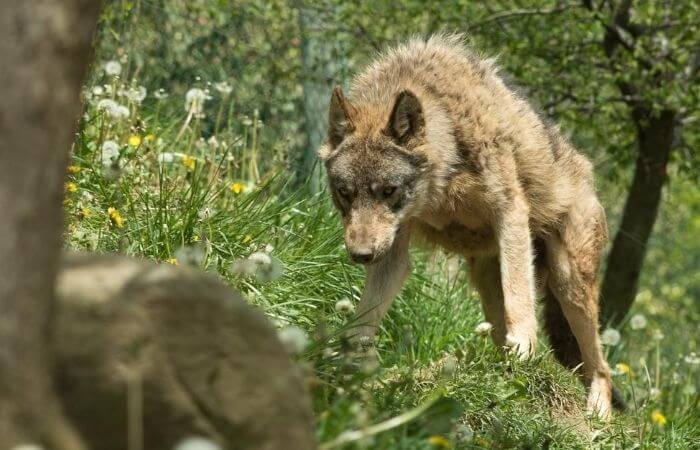
It is certainly not unheard of for wolves to eat cats, heres a quote from someone who lives in an area with plenty of wolves
“I have some experience with this [wolves eating cats] because I live on the edge of the Absaroka Beartooth Wilderness area in the USA.
We have a very high population of wolves because until recently they were protected from hunting and trapping.
Wolves will kill any cats they can with great relish, and domestic cats are particularly easy for them to kill.”
With size not helping the domestic cat, the wolf will quickly pounce and kill the cat without hesitation when the opportunity presents itself.
How Likely Is Your Cat To Encounter A Wolf?
In the last 40 years, wolves have re-populated making an incredible comeback as only a year ago it could have been possible that only 1000 wolves were roaming in Europe according to BBC Earth.
This has nearly doubled to 12,000 wolves in Europe with the US Wolf population also expanding rapidly in the wild.
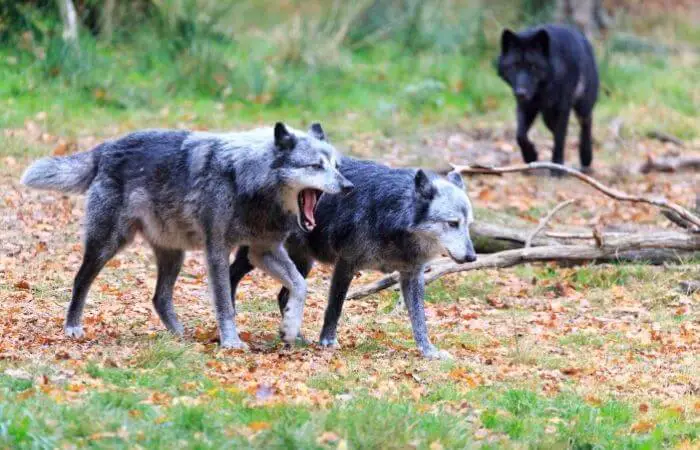
According to the Wolf Conservation Centre, there could be up to 18,000 wolves currently roaming in the US with that number looking to rise over the next coming years considerably.
However, despite significant growth in wolf numbers, they are still extremely rare compared to cats. This means that the chances of your cat encountering a wolf are very low, so for most people you don’t need to worry about your cat being eaten by a wolf.
If you live in a remote wood in Europe or the U.S then there is a small chance that your cat may encounter wolves so keep an eye on the local wildlife.
Wolf Prey Statistics
The Humane Society states that wolves kill very few cattle and sheep.
Livestock predation data collected by various sources of governmental bodies differ significantly, however.
The most recent data published and collected by the U.S. Department of Agriculture-Animal and Plant Health Inspection Service (USDA) departments indicate losses many times greater than those collected by states and the well known U.S. Fish and Wildlife Services (FWS) departments. In the Northern Rocky Mountains, for instance, the USDA claims wolves killed 4,360 cattle in 2015.
Despite this Wolves are actually responsible for less than two-tenths of a per cent (.2%) of cattle deaths. About 94% of losses are due to non-predatory related causes, such as respiratory disease, digestive problems, weather and calving problems.
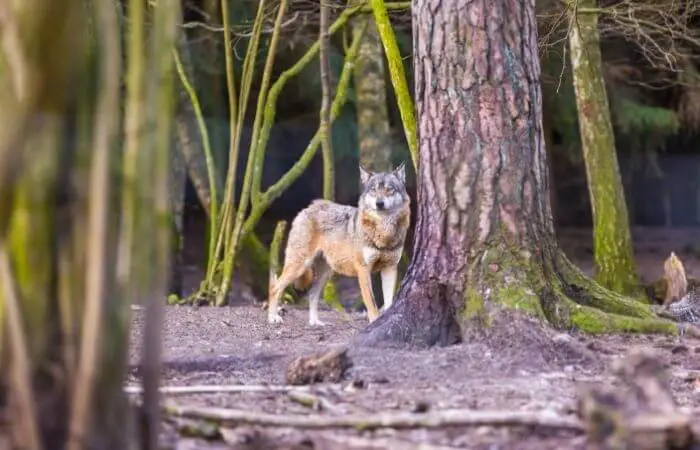
In 2011, a known spokesperson for the Oregon Department of Fish and Wildlife said that “no wolves have attacked humans in the areas of the Rocky Mountain states.”
The Oregonian newspaper investigated the claim. A reporter contacted the International Wolf Center in Ely, Minnesota, where a spokesperson stated that wolves had not attacked humans in the lower 48’ according to The Dodo.
So with little reports of wolves venturing into areas of population, that is a positive sign for anyone concerned about wolves attacking their cat.
Believe it or not wolves responsible for less than two-tenths of a percent (.2%) of cattle depredations. About 94% of losses are due to non-predatory related causes, such as respiratory disease, digestive problems, weather, and calving problems.
Wolves Are Natural Born Apex Predators So Will Kill Cats If They Encounter Them
Like any other predator in the ecosystem, it can often be the case that domestic animals get mixed up in the ecosystem and become prey.
Wolves primarily take the old and young rather than the most significant and healthiest animals which could mean kittens and older cats could be more of a target as they are slower.
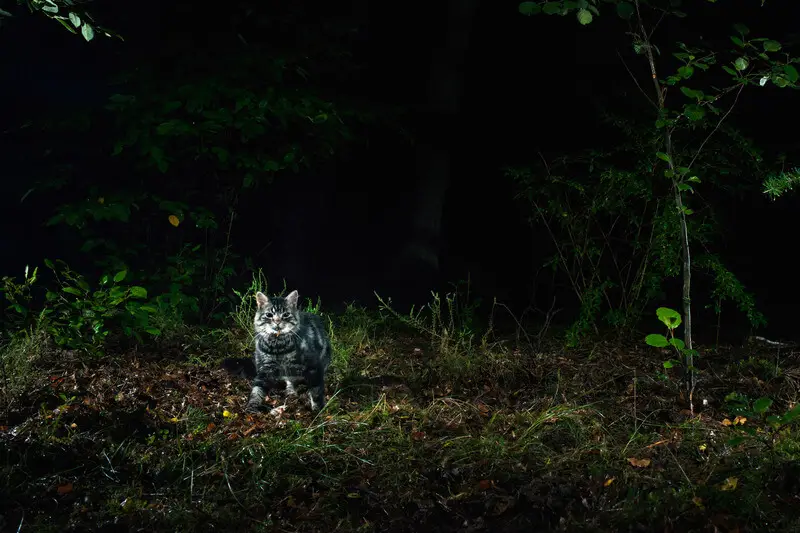
Wolves also have a presence within the population and distribution of smaller predators let us not forget. Animals such as coyotes, foxes and skunks become victims and have cascading effects due to nesting grounds and habitats with wolves hunting and stalking prey over long distances.
How To Keep Cats Safe From Wolves?
It is simple. Just be aware and take the right precautions.
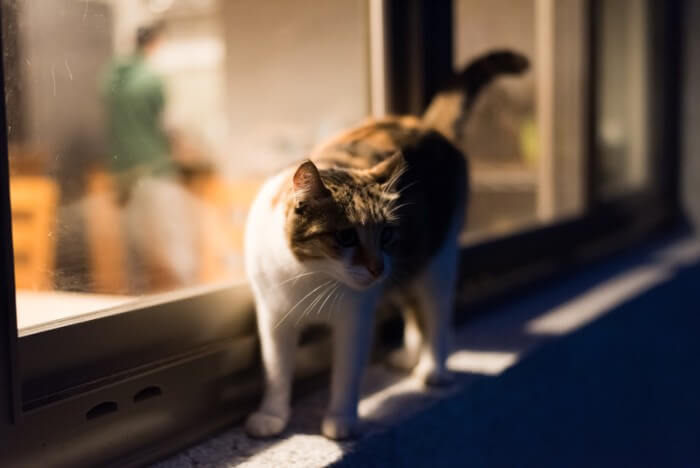
Here is what we would recommend you do:
- Wolf proof your garden and surrounding areas. Make sure that barriers exist to keep wolves and coyotes out. Make sure that any fence is at least 6 feet or higher. It should also extend into the ground and be made of a durable material such as a wire fence.
- Install sensitive lighting into your house and garden that are motion-based.
- Make sure your cat is healthy, don’t let them out if they are ill or slow (due to old age/health).
- Attach noisy collars to your cat such as bells to help ward off wolves.
- Keep your cat in at night to reduce the chance of anything happening.
Also Read: Do Bears Eat Cats?
Conclusion
While in many cases that wolves have killed cats it is infrequent and with the right measurements put in place, you can reduce the risk of this happening even further if you feel that wolves could be a possible threat to your cat.
Take the right precautions, such as keeping your cat inside, getting the right equipment to keep them safe and make sure they are not venturing into places where they shouldn’t be.
Many of the situations and occasions where wolves have attacked cats is of rare circumstance and may have been exaggerated as they often have no supportive evidence.
It is therefore very unlikely for your cat to be attacked by a wolf even in the rarest circumstances.
As an Amazon Associate I may earn a small fee from qualifying purchases at no extra cost to you. This helps us run the site, so thanks for your support!

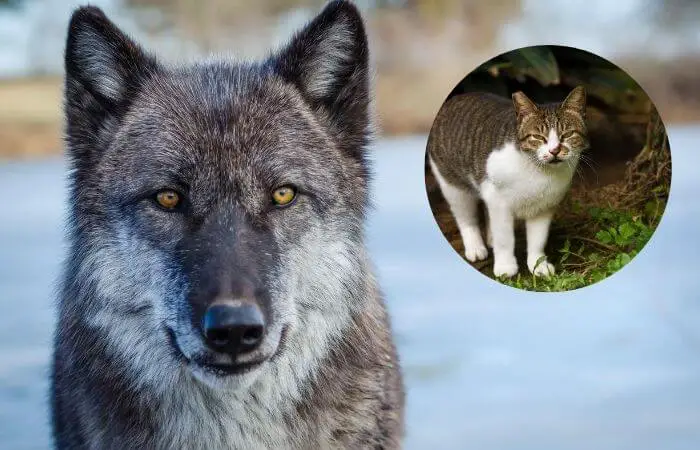

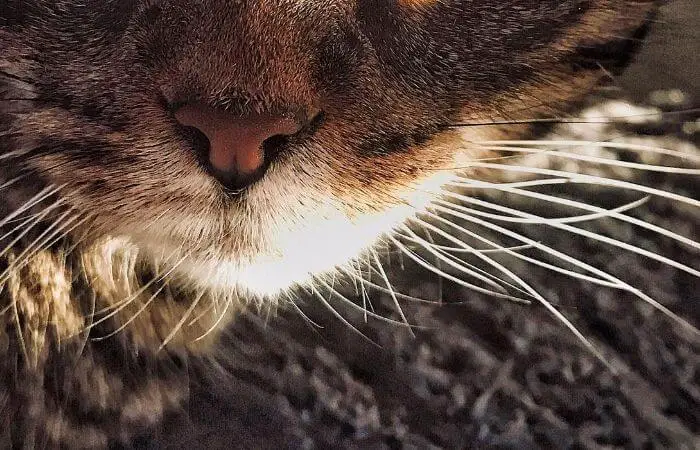

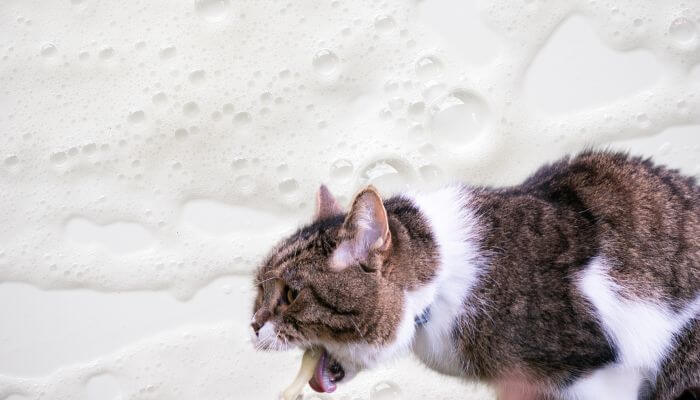


Leave a Comment